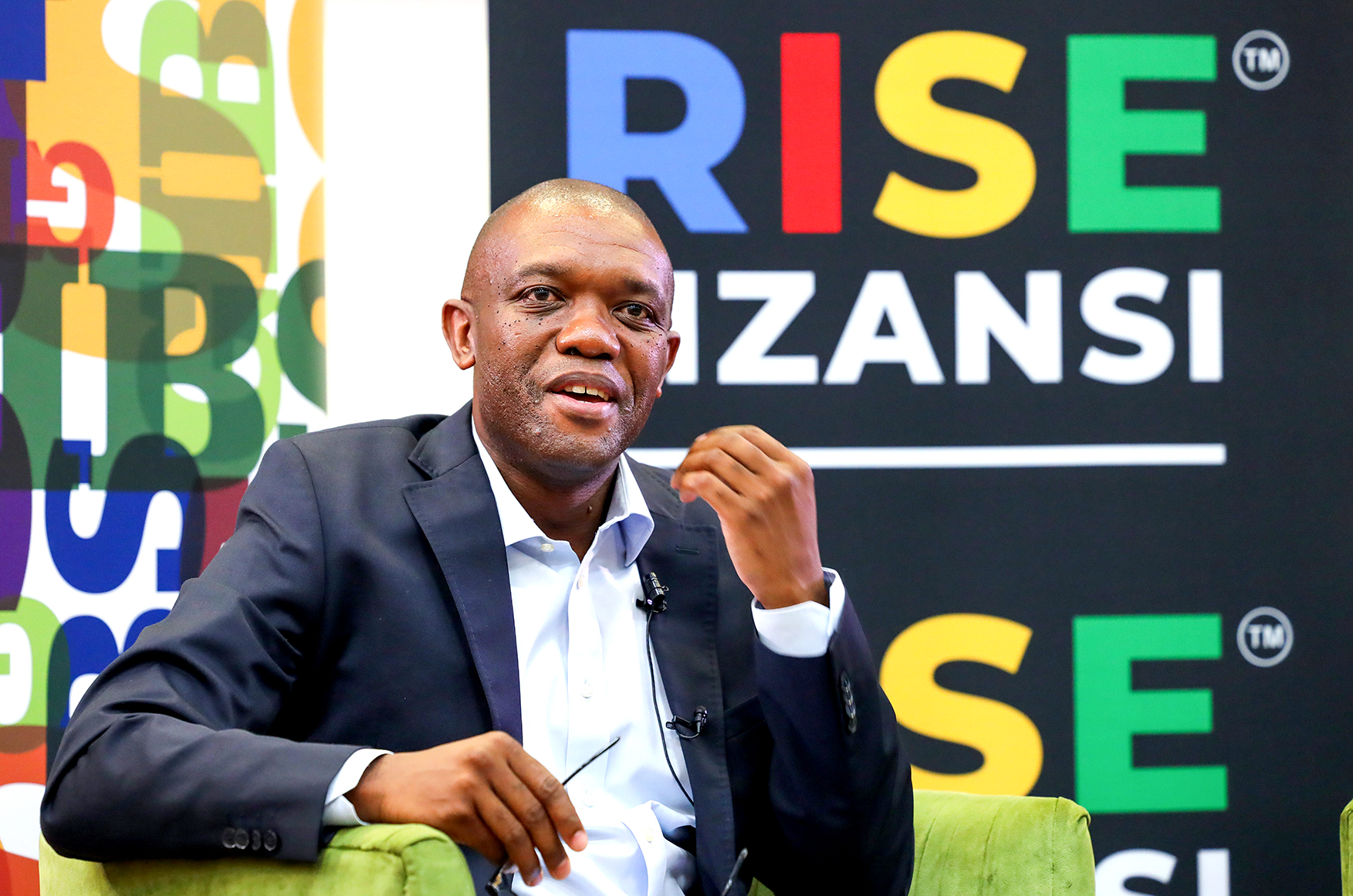As the work of the seventh Parliament gets under way in earnest this week, one reality is sinking in: for the first time in the democratic South Africa, no party has a majority in any committee.
The impact, believes the new chair of the Standing Committee on Public Accounts (Scopa), Songezo Zibi, might be profound.
“You can’t have people just refusing to listen because they’ve been whipped and they must just put up their hands and say no. People will have to try and win the argument, which is a good thing,” Zibi told Daily Maverick on Tuesday.
The Rise Mzansi leader said that he did not think the nature of the Government of National Unity (GNU) would mean that its members from different parties would thwart Parliament’s accountability efforts in solidarity with each other.
“I don’t think the DA wants to cover up for their ANC Cabinet members, and vice versa. Ultimately, there is political competition. And I think that gives us an opportunity to have this kind of consensus in the committee that you previously might not have had because people just get whipped into line,” said Zibi.
“Even if something is narrowly not approved, you won’t have the situation where it’s a fait accompli. Citizens need to think, ‘That was close, and there was a real discussion, and people justified themselves.’”
Scopa gets under way with new blood
Zibi was speaking on the sidelines of the first Scopa meeting of the seventh Parliament on Tuesday.
The election of Zibi as the chair of what is arguably Parliament’s most significant committee was one of the political outcomes of the GNU discussions: his party, Rise Mzansi, is a signatory to the GNU, and this post was its gift.
Not everyone was happy with this outcome, because traditionally Scopa is chaired by an opposition MP. Past chairs have been drawn from the then Democratic Party, the IFP twice, the New National Party and the African People’s Convention, whose founder, Themba Godi, occupied the Scopa chair for an unprecedented 15 years, between 2004 and 2019.
“Having an opposition member leading Scopa has obvious advantages,” Godi previously told the People’s Assembly website.
“The chair is not immediately constrained by narrow party considerations, especially the instinct to defend or avoid embarrassing their own party’s minister. It also makes officials’ work more difficult in preparing for meetings, in the knowledge that the chair will not instinctively be inclined to cover up a bit for them…
“An opposition chair is immune from the internal party backlash and is readily available to communicate messages to the public via the media.”
The fact that Zibi’s party has signed the GNU Statement of Intent means that technically he is not an opposition MP — about which ActionSA expressed unhappiness in July.
ActionSA termed Zibi’s election a “troubling departure” from “international best practice”, suggesting that the position being given to a member of the GNU “serves to potentially neuter effective oversight over government expenditure”.
Zibi is not fazed by these claims.
“I think people are mischaracterising the tradition,” he told Daily Maverick.
“The tradition is that the chair of Scopa is not from the majority party. [Rise Mzansi is] not even in the national Cabinet, so the conflict doesn’t arise.”
Mostly, however, Zibi’s election has been greeted with enthusiasm — in part because the former Business Day editor is viewed as sufficiently politically neutral to command respect from across the political spectrum.
Of the MPs who will sit on this all-important committee for the seventh Parliament, only the EFF’s Veronica Mente is returning. All the rest are new members.
MK keen to put stamp on Scopa
At the committee’s first sitting on Tuesday, the absence of several MPs meant that one party did have a (temporary) majority at the meeting: MK.
Zuma’s party’s three MPs demonstrated a clear desire to make their presence felt, with David Skosana — the husband of former Public Protector Busisiwe Mkhwebane — particularly vocal.
Skosana suggested that one of the committee’s first courses of action should be to probe mining house De Beers for alleged tax non-compliance.
The remit of Scopa, however, is to study the finances of the public sector: the financial statements and audit reports of all executive organs of state.
As the parliamentary legal adviser, Fatima Ebrahim, reminded the committee members, their work is about financial compliance and “not policy matters” — an idea MK seemed to chafe against.
“Scopa should be above politics, but unfortunately you can’t separate the two,” Skosana opined.
Asked by Daily Maverick how he intended to handle MPs entering the committee with clear agendas of their own, Zibi said the initial work of the committee would be to set out a programme.
“Part of what I’ll be doing as the chair is to make sure that all the committee members understand what the parameters are,” he said.
Each iteration of Scopa is able to decide on particular areas of focus, which the committee will be discussing this week.
“The SOEs [state-owned enterprises] are a big issue, because they affect millions of South Africans, so we have to have that individualised focus,” said Zibi.
He added that he would also like the committee to crack down on unauthorised and wasteful expenditure. “I know corruption is a big issue, but spending money on things that don’t deliver is also just as bad as stealing it.”
In his introductory remarks to the committee on Tuesday morning, Zibi reminded the members of what was at stake in carrying out their oversight work.
The failure of government to carry out its mandate was not “victimless”, said Zibi.
“At the end of each [such failure] is a human being whose life could have been a little better. The purpose of why we do this ultimately … is to make sure that the lives of South Africans are better.” DM





